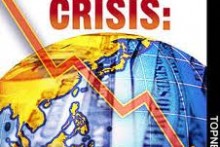GOING THROUGH WITHDRAWAL: ON THE ROAD TO ECONOMIC RECOVERY

the pain of shedding unsupported wealth
I just completed reading Michael Lewis’s new book, Boomerang: Travels in the new third world. He reflected on how the cultures of Iceland, Ireland, Greece, and Germany got caught up in the current economic crisis and how each culture is struggling to recover. I laughed at their gullibility until it dawned on me that we are on the same path—it’s just taking longer for us to fail because of greater reserves.
The fundamental cause of our global economic crisis is that leverage affords people a glimpse of prosperity that hasn’t really been earned—a paradigm foretold by Ayn Rand in her classic, Atlas Shrugged. When people “earn” their living by creating, making, or selling real items—prosperity grows. But when non producing entities such as hedge funds, governments, or stock and currency speculators step in and are allowed to start influencing control; artificial (unsupported) wealth is created. The payoff from joining the “middleman class” is that wealth can accumulate faster. Nothing is required except increasing expectations on behalf of the buyer…the “middleman class” doesn’t get involved in the messy activity of building and managing in the real world.
Over the past few decades, societies have slowly relinquished respect for their doers while aggrandizing membership in the non productive (and now controlling) “middleman class”. For example, Iceland’s economy has always been based on fishing, but once Icelanders started speculating on fishing production, the acquisition of quick (albeit artificial) wealth became a new reality. Fishers didn’t have to put on work clothes and risk their lives on the high seas—they could make more money using their newfound speculative wealth to buy and sell in financial markets around the world.
Economic recovery will be slow and arduous until the unsupported wealth developed over several decades passes through and is excreted by each country’s economic system. In Greece, public service employees earn three times more than people working in the private sector. The public sector has been a rapidly growing member of the “middleman class”—providing nice to have but perhaps currently unaffordable services. They consume s, it does not grow a nation’s wealth and prosperity.
The only sustainable way to resolve the economic crisis is for each country to bear the pain of withdrawal from unsupported (leveraged) wealth and return to the basics—producing what they can build and sell at a profit, and by living within their means. Rather than gamble on stock trades, people would be wise to invest in real businesses that can be touched directly rather than entrusting their economic security to the “middleman class”. When people invest personally they are more inclined to remain informed and exercise their right as a shareholder to oversee and protect their investment. Perhaps direct involvement would put a dent in executives awarding themselves what the real world considers excessive compensation.
Wealth and prosperity will start a slow but solid recovery once people return to depending on themselves rather than depending on a costly and unproductive “middleman class”.